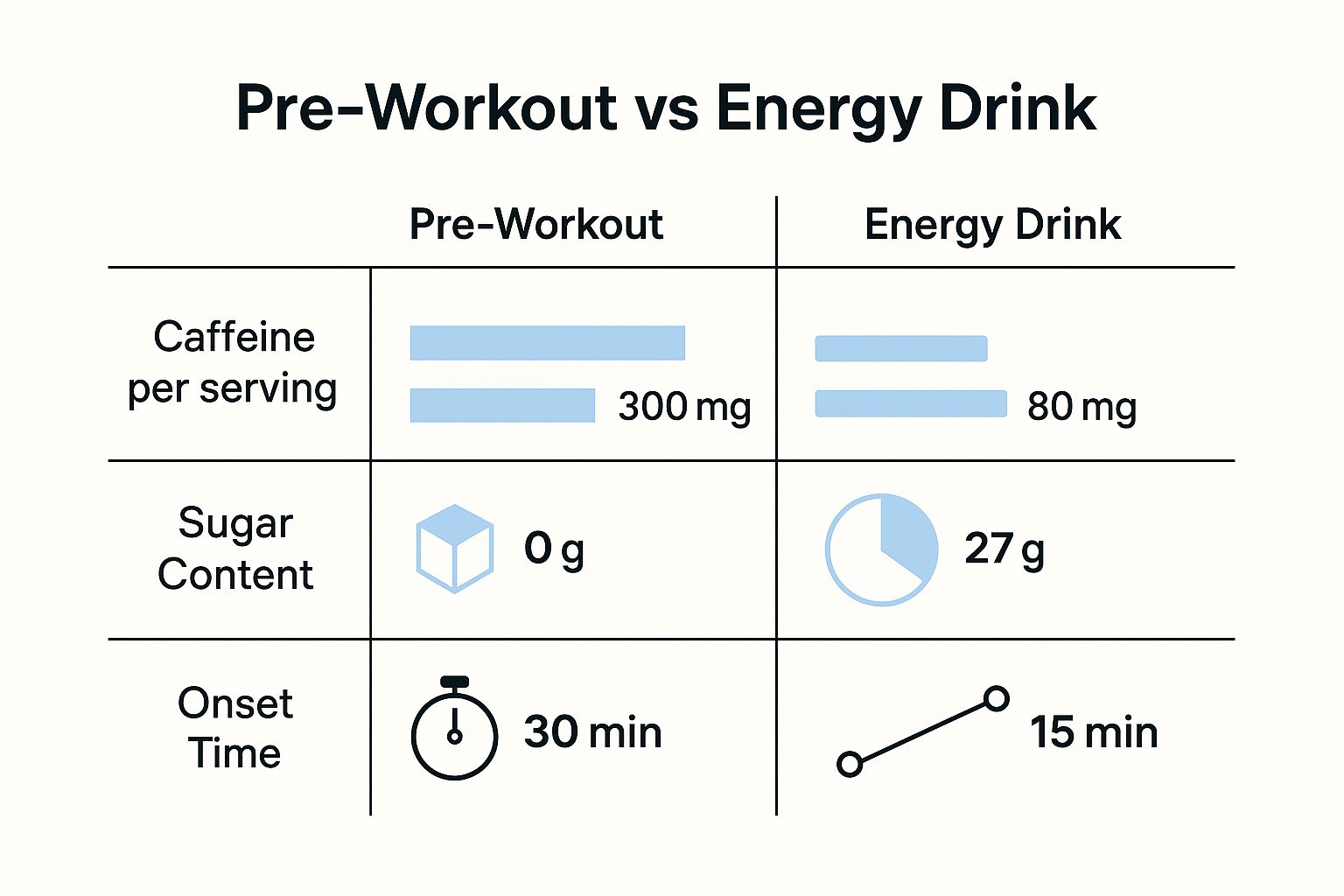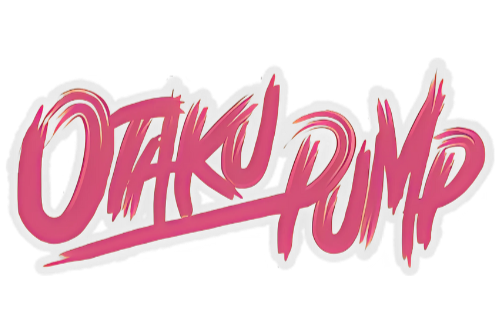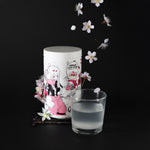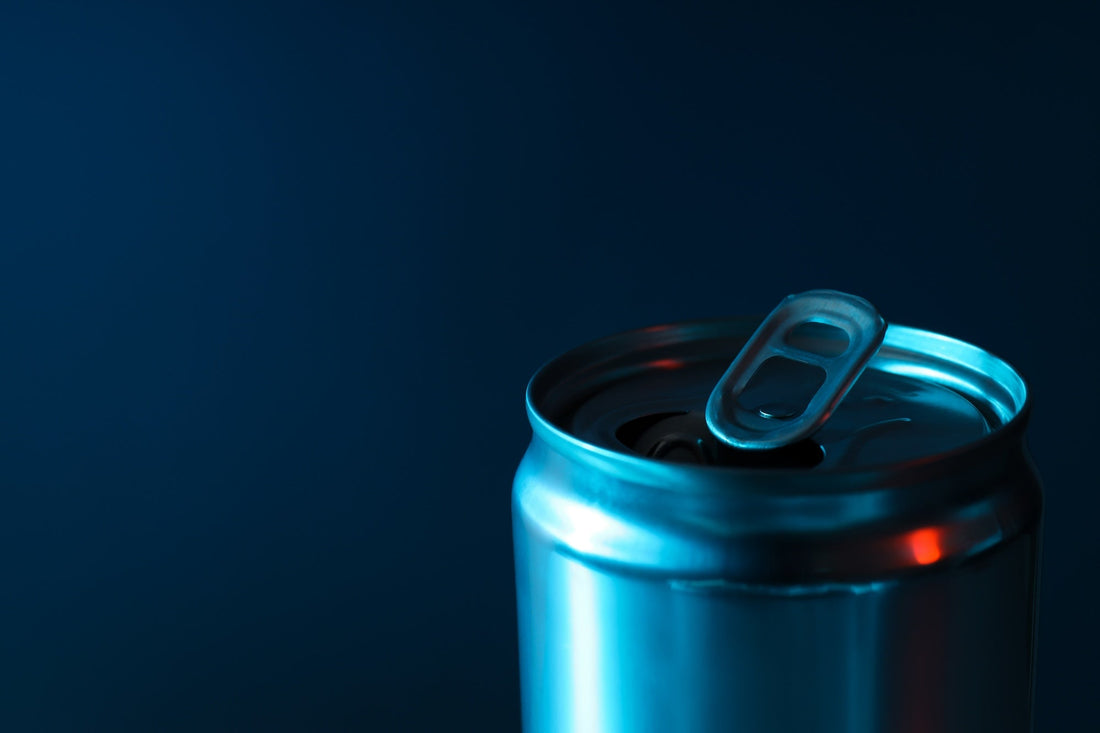When you're trying to decide between pre-workout vs energy drinks, it really boils down to one simple question: What's the mission? Think of it this way: a pre-workout is a specialized tool engineered for a specific job—crushing your workout. An energy drink is more of a general-purpose power-up for when you just need to feel more awake. The choice you make directly impacts your performance, whether you're hitting the gym like a Saiyan in training or just need to stay focused.
Decoding Your Drink: The Primary Mission
Before we get into the nitty-gritty of ingredients and formulas, let's zoom out. The real choice here isn’t about which drink is “better” in a vacuum, but which one is the right tool for what you’re about to do. Getting this right is the most important step for any fitness enthusiast.
A pre-workout supplement is built from the ground up with one single goal: to get your body primed for intense physical effort. Every ingredient is there for a reason—to boost strength, push endurance, improve blood flow, and sharpen your focus inside the gym. It’s like equipping your character with stat-boosting gear right before a big boss battle in your favorite anime.
Energy drinks, on the other hand, are designed for a much broader audience. Their main job is to kick fatigue to the curb and give you a jolt of mental alertness. This makes them perfect for a late-night study session or a long drive. The focus is squarely on cognitive energy, not so much physical performance.
For anyone just starting out and feeling a bit lost, our guide on pre-workout for beginners is the perfect place to get up to speed.
At a Glance: Key Differences
Understanding this fundamental split is everything. A pre-workout gets your body ready for the specific stress of exercise. An energy drink gives your brain a quick, generalized boost.
The simplest way to put it is this: Pre-workouts are for performance enhancement. Energy drinks are for fatigue reduction. One is proactive preparation for a physical fight; the other is a reactive fix for being mentally tired.
To lay it out even more clearly, here's a quick rundown of what each one brings to the table:
| Feature | Pre-Workout Supplement | Energy Drink |
|---|---|---|
| Primary Goal | Enhance physical performance and endurance in the gym | Provide a quick boost in mental energy and alertness |
| Key Ingredients | Beta-Alanine, Citrulline, Creatine, High-Dose Caffeine | Caffeine, B-Vitamins, Taurine, often high in sugar |
| Best Use Case | Before intense workouts, weightlifting, or athletic events | Studying, long drives, overcoming afternoon slumps |
| Formulation | Typically a powder mixed with water for precise dosing | Ready-to-drink carbonated beverage for convenience |
Analyzing the Formulations: What’s Really Inside?
To get to the bottom of the pre workout vs energy drinks debate, you have to pop the hood and look at the ingredients. The real difference isn't just marketing—it's engineered right into the formula. One is a purpose-built toolkit for physical performance, while the other is a simple stimulant for general alertness.
This difference in purpose drives every single ingredient choice. Think of pre-workouts as a specialist's loadout, with each compound chosen to boost a specific aspect of your athletic output. Energy drinks, on the other hand, are more like a quick-fix potion. They give you a fast, accessible boost but just don't have the targeted effects you need for a serious training session.
This image gives you a quick side-by-side on the key metrics like caffeine, sugar, and how fast they kick in.

You can see it right away. The pre-workout is built for performance—higher caffeine for intensity and zero sugar to prevent a crash. The energy drink is all about that quick, sugar-fueled jolt.
To make it even clearer, let's break down exactly what you'll find in each.
Comparative Ingredient Analysis: Pre-Workout vs. Energy Drink
| Ingredient | Found in Pre-Workout | Found in Energy Drink | Primary Function |
|---|---|---|---|
| Caffeine | Yes (200-350mg) | Yes (80-160mg) | Increases alertness and focus, delays fatigue. |
| Beta-Alanine | Yes (Commonly) | No | Buffers lactic acid, increases muscular endurance. |
| Citrulline | Yes (Commonly) | No | Boosts nitric oxide for improved blood flow (pump). |
| Creatine | Yes (Often) | No | Increases ATP production for strength and power. |
| Sugar | Rarely | Yes (Often 25-50g) | Provides a quick, but unsustainable, energy source. |
| B-Vitamins | Yes | Yes | Supports overall energy metabolism. |
| Taurine | Yes | Yes | Aids in cell hydration and electrolyte balance. |
This table really spells it out. Pre-workouts are loaded with compounds specifically chosen to help you lift more, run longer, and fight off muscle fatigue. Energy drinks? They mostly stick to the basics for a quick pick-me-up.
The Pre-Workout Arsenal: Performance-Enhancing Compounds
A good pre-workout isn't just a random mix of stimulants; it's a synergistic blend where every ingredient has a job to do. These are scientifically-backed compounds, included at specific doses to elevate your physical capabilities.
- Caffeine: This is the workhorse stimulant, typically dosed between 200-350 mg. Its job is to sharpen your focus, boost alertness, and help you push through fatigue when the workout gets tough.
- Beta-Alanine: Famous for the "tingles," this amino acid’s real purpose is to buffer lactic acid in your muscles. That means you can squeeze out more reps and fight off that burning sensation.
- Citrulline Malate: A potent nitric oxide booster, citrulline is what gives you that skin-splitting "pump." It enhances blood flow, delivering more oxygen and nutrients to your working muscles.
- Creatine Monohydrate: As one of the most-studied supplements on the planet, creatine helps your muscles produce energy during heavy lifts and high-intensity exercise, directly boosting your strength and power.
This laser-focus on performance is why the market is exploding. The global pre-workout supplement market was valued at around USD 21.7 billion in 2025 and is projected to nearly double to USD 44.7 billion by 2035. This massive growth is fueled by people getting more serious about fitness and looking for an edge with proven ingredients like caffeine, creatine, and citrulline. You can dig into the numbers on Future Market Insights.
The Energy Drink Formula: Simplified Stimulation
Energy drinks take a much broader, simpler approach. The goal isn't to help you build muscle or improve endurance; it's to fight off tiredness with a quick, convenient buzz.
You’ll notice the ingredient list is much shorter and far less specialized.
While a pre-workout is built to help you perform better physically, an energy drink is designed to help you feel less tired mentally. This distinction is crucial when choosing your fuel.
The main active ingredients in most energy drinks are caffeine and sugar, with a couple of other common additions.
- Caffeine: The dose is usually much lighter than in pre-workouts, hovering between 80-160 mg per can. It's enough for a noticeable lift but isn’t dialed in for intense physical effort.
- Sugar or Artificial Sweeteners: Many big-name energy drinks are packed with 25-50 grams of sugar, giving you a fast but fleeting energy spike that almost always ends in a crash. The sugar-free options just swap this out for artificial sweeteners.
- Taurine and B-Vitamins: These are often thrown in to support general energy metabolism. While they aren't useless, they don't provide the direct, in-the-moment performance benefits that compounds like beta-alanine or citrulline do.
The difference in formulation is stark. The complex, multi-ingredient profile of a pre-workout is tailor-made for the gym. The simple, stimulant-focused blend of an energy drink is better suited for an all-night study session. Knowing what's inside is the first step to picking the right tool for the job.
How Each Drink Impacts Performance

This is where the rubber meets the road. Knowing the real impact of each drink is what matters when choosing between a pre workout vs energy drinks. One is a precision tool engineered for the demands of the gym, while the other is more of a general-purpose pick-me-up for your brain.
Their effects on your performance are a direct reflection of their very different formulas.
Pre-workout supplements are designed to attack physical limitations from multiple angles. The ingredients are chosen to work together, creating a synergistic effect that elevates what your body can actually do during a tough training session.
Take an ingredient like citrulline malate. It’s in there for one primary reason: to boost nitric oxide production. This widens your blood vessels for better blood flow, giving you that satisfying muscle "pump" while also shuttling more oxygen and nutrients to your working muscles. The result? Better endurance and more power, rep after rep.
Pre-Workout: The Physical Power-Up
The performance boost you get from a pre-workout is targeted and very real. Ingredients like beta-alanine are included to specifically fight the buildup of lactic acid—that burning sensation that forces you to end a set. By buffering that acid, you can push past fatigue and crank out more work before hitting failure.
This isn't just about feeling a buzz; it's a legitimate enhancement to your muscular endurance. You’re setting yourself up for a more productive workout where you can lift heavier, go longer, and ultimately stimulate more growth. It's a strategic advantage built for athletes.
Pre-workouts don't just make you feel energized; they directly improve physiological processes tied to strength, endurance, and power. That specialized approach is the real difference-maker.
A well-formulated pre-workout is designed to:
- Delay Muscle Fatigue: Helping you squeeze out those extra reps and sets.
- Increase Power Output: Letting you lift heavier or perform explosive movements with more force.
- Enhance Blood Flow: Giving you better muscle pumps and improving nutrient delivery.
- Sharpen Mental Focus: Keeping you dialed into your workout with a strong mind-muscle connection.
Energy Drinks: The Cognitive Quick-Fix
Energy drinks, on the other hand, mainly target your central nervous system for a mental lift. Their goal is to jack up alertness and fight drowsiness, which makes them great for a long study session or a late-night drive. The caffeine definitely delivers a noticeable bump in reaction time and concentration.
But for physical training, that’s pretty much where the benefits stop. They just don't have the specialized ingredients needed to support muscular endurance, strength, or power output.
Worse yet, most popular energy drinks are loaded with sugar. Sure, you get an initial rush, but it’s often followed by a hard "sugar crash" right in the middle of your workout. That sudden energy drop can completely kill your momentum, leaving you feeling worse than when you started. A good pre-workout is almost always formulated with zero sugar for this exact reason, giving you sustained energy without the crash.
Then there’s the carbonation. The fizz in most energy drinks can lead to bloating, stomach discomfort, or cramping—the absolute last thing you want when you're under a heavy barbell.
While both have caffeine, its role and the team of ingredients supporting it are worlds apart. In an energy drink, caffeine is the solo star. In a pre-workout, it’s part of a carefully selected ensemble. For a deeper look at how different caffeine sources compare, check out our guide on pre-workout vs coffee. Choosing the right drink is all about aligning the tool with the task at hand.
Choosing Your Fuel for Different Scenarios
https://www.youtube.com/embed/m3Y6JinnzWg
Knowing the difference between a pre-workout and an energy drink is one thing. Knowing which one to grab is what really counts. Your choice of fuel should always match the mission, so let's break down a few common situations to build a solid game plan.
This isn't just about reading an ingredient list. It's about picking the right tool for the job to make sure you're always firing on all cylinders, whether you're under a barbell or staring down a deadline.
Scenario One: The Intense Lifting Session
It’s leg day. You’re heading into the gym for a battle with heavy squats, lunges, and whatever else the rack has in store for you. The goal here is pure strength, power, and pushing your muscles to the absolute limit for growth.
Verdict: Pre-Workout, no contest.
This is exactly what a pre-workout was engineered for. You need a lot more than a simple caffeine buzz; you need a formula built to support raw power and muscular endurance. Ingredients like Citrulline Malate are in there to boost blood flow for a better pump and nutrient delivery, while Beta-Alanine helps fight that muscle burn, letting you grind out those extra reps that make all the difference.
Grabbing an energy drink here would be a mistake for a few reasons:
- Carbonation: That fizz can leave you feeling bloated and uncomfortable—the last thing you need when your core is braced for a heavy lift.
- Sugar Crash: If your drink is loaded with sugar, you're setting yourself up for a massive energy drop right in the middle of your workout.
- Missing Ingredients: An energy drink simply lacks the targeted compounds your muscles are screaming for during intense resistance training.
Scenario Two: The All-Night Study or Gaming Grind
Now, let's switch gears. It’s 11 PM. You have a monster project due in the morning or you're deep into a competitive gaming session where every millisecond counts. Your goal isn't physical power, but sustained mental focus and sharp reaction times.
Verdict: Energy Drink is the smarter play.
In this situation, all those specialized performance enhancers in a pre-workout are just overkill. An energy drink’s simpler formula, built around caffeine and B-vitamins, is perfectly tuned for boosting cognitive function and keeping you awake and alert. Plus, the grab-and-go convenience is hard to beat.
Using a pre-workout to study is like using a sledgehammer to hang a picture frame. It’s the wrong tool for the job, and the physical side effects—like the beta-alanine tingles—would be a massive distraction.
Scenario Three: Early Morning Cardio
This one's a bit trickier. It's 6 AM, you're up for a fasted cardio session to burn fat and fire up your metabolism. You need a boost to get moving, but you don't want to feel over-caffeinated or weighed down.
Verdict: It depends, but a pre-workout often gets the nod.
A low-stimulant pre-workout, or even just half a scoop of your regular one, can be perfect here. It delivers the energy and focus you need to get going without the high sugar content you’ll find in many energy drinks. While the performance ingredients aren't as critical as they are for lifting, they can still help with overall endurance.
That said, a sugar-free energy drink can also work. It gives you that necessary caffeine kick to get you out the door and onto the pavement. The key is to skip the sugar, which can cause an insulin spike and get in the way of fat burning. Ultimately, this choice comes down to personal preference and how your stomach handles carbonation while running. A pre-workout mixed with plain water is usually much easier to handle.
At the end of the day, picking the right fuel is all about situational awareness. Just ask yourself one simple question: "What am I trying to accomplish?" When you match the fuel to the fight, you'll always get the right kind of boost, right when you need it.
Navigating Health and Safety Risks
When you're deciding between pre-workout and an energy drink, performance isn't the only thing on the table. We have to talk about the potential health risks. Honestly, both can have downsides if you’re not smart about how you use them. Getting a handle on these risks is key to making a choice that supports your fitness goals long-term.
With pre-workouts, the biggest conversation is always around stimulants. A heavy dose of caffeine can easily push you into overstimulation, leaving you with jitters, anxiety, or a racing heart. It's always best to start with a smaller scoop to see how you feel before diving into a full serving.
Understanding Pre-Workout Sensitivities
Let's talk about that tingling sensation. It’s called paresthesia, and it comes from Beta-Alanine. It might feel a bit weird at first, but it’s completely harmless and usually fades once you start moving. Think of it as a little signal that the ingredients are kicking in, a sign you're ready to go Plus Ultra in the gym.
Another pro-tip is to cycle off your pre-workout. If you take a high-stimulant formula every single day, your body builds a tolerance, and you'll soon need more and more to get that same kick. Taking a 1-2 week break every 6-8 weeks lets your system reset. This keeps the product working effectively and, more importantly, safely. For a deeper dive, check out our complete guide on pre-workout side effects.
The goal is to use these supplements as a strategic tool, not a daily crutch. Listening to your body and respecting its limits is the foundation of safe and effective supplementation.
The Hidden Dangers in Energy Drinks
Energy drinks come with a completely different set of concerns, mostly tied to everything besides the caffeine. So many of the big brands are packed with sugar, which can lead to unwanted weight gain and that infamous energy crash. Even the sugar-free versions are loaded with artificial sweeteners that many people try to avoid.
The sheer accessibility of these drinks is part of the problem. The global energy drinks market hit an estimated USD 79.39 billion in 2024 and is on track to reach USD 125.11 billion by 2030—that’s a lot of cans. While sugar-free options are everywhere now, chugging these regularly can still put a strain on your cardiovascular system.
To keep it safe, just stick to these ground rules:
- Read the Label: Know what’s inside, especially the caffeine and sugar content.
- Know Your Tolerance: Never go all-in on a new product. Start small.
- Avoid Mixing: Don't combine pre-workouts or energy drinks with alcohol or other stimulants.
- Consult a Professional: If you have any pre-existing health conditions (especially heart-related), talk to a doctor before using any stimulant-based products.
At the end of the day, you can use both pre-workouts and energy drinks safely. It all comes down to being informed and using them in moderation. Once you understand the unique risks of each, you can power up for your goals without messing with your health.
Common Questions About Pre-Workouts and Energy Drinks
The whole pre workout vs energy drinks debate really comes down to a few key questions. We've gone through the ingredients, performance, and when to use each one, but let's clear up the questions that always seem to pop up. Nailing these answers means you'll know exactly how to use each one safely to hit your fitness goals.
This last section will give you straight, no-nonsense answers to make sure you're making the right call every time you need a boost.
Can You Use an Energy Drink as a Pre-Workout?
Honestly, while you can grab an energy drink before the gym, it's a pretty poor substitute for a real pre-workout. Sure, that quick hit of caffeine will wake you up and get you through the door, which is better than nothing.
But that's really where the benefits stop. Energy drinks just don't have the performance-focused ingredients that make a pre-workout effective. You're missing out on things like citrulline malate for better blood flow and those skin-tingling pumps, or beta-alanine to help you push through that last tough set.
Plus, most energy drinks are loaded with sugar and carbonation, a perfect recipe for bloating, an upset stomach, or a nasty energy crash right in the middle of your lift. A proper pre-workout is built from the ground up to give you sustained energy and targeted support for your muscles.
Is It Safe to Take Pre-Workout Daily?
Taking pre-workout every day is pretty common, but you have to be smart about it. The biggest thing to watch out for is building up a tolerance to the stimulants, especially caffeine. If you take it every single day without a break, your body gets used to it, and you'll find yourself needing more and more to get that same kick.
That's when you can run into side effects like jitters, anxiety, or trouble sleeping.
To keep your pre-workout working effectively, most experienced lifters and coaches recommend cycling it. A solid plan is to use it for 6-8 weeks, then take a 1-2 week break. This little "washout" period lets your caffeine sensitivity reset.
On your off weeks or for lighter workouts, you could always switch to a stimulant-free pre-workout. That way, you still get the pump and endurance benefits from ingredients like citrulline without the caffeine. Bottom line: listen to your body. If you feel like you need it just to function, it’s time for a break.
Which Option Is More Cost-Effective?
When you look at the cost over time, it's not even close. For anyone training consistently, pre-workout powder is way easier on the wallet.
Let's just do the simple math. A standard tub of pre-workout has about 30 to 40 servings. Depending on what you buy, that usually works out to somewhere between $1.00 and $1.50 per scoop.
- Pre-Workout Serving: ~$1.25
- Single Energy Drink: ~$3.00
Compare that to a single can of your favorite energy drink, which can run you anywhere from $2.50 to $4.00. If you're training four or five days a week, that cost adds up fast. Grabbing a can might feel cheaper in the moment, but if you're serious about your training, pre-workout powder is the smarter financial choice by a mile.
Are Sugar-Free Energy Drinks a Good Pre-Workout Alternative?
Sugar-free energy drinks are definitely a better choice than the full-sugar versions. You get the energy boost without having to worry about a massive sugar crash an hour later, which is a huge plus.
But even then, they just can't compete with a true pre-workout. They give you the caffeine for that mental buzz, but they’re still missing all the key ergogenic aids—the stuff that's actually proven to help your physical performance.
With a sugar-free energy drink, you're not getting:
- Enhanced Muscle Pumps: No nitric oxide boosters like citrulline.
- Improved Muscular Endurance: No lactic acid buffers like beta-alanine.
- Increased Power Output: No strength boosters like creatine.
So, while a sugar-free can is fine in a pinch when you just need a quick jolt, it won’t deliver the well-rounded performance benefits a good pre-workout is designed for. Think of it as showing up to a construction site with just a hammer when you really need a full toolkit. It'll get some of the job done, but it’s not the right tool for the best results.
Ready to fuel your workouts with a formula built for peak performance? Otaku Pump combines the energy you need with the targeted ingredients that deliver real results, all inspired by the fighting spirit of your favorite anime heroes.




